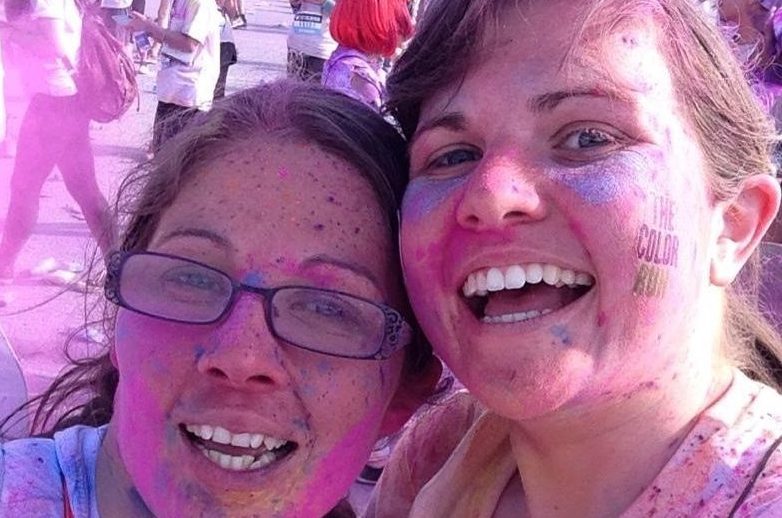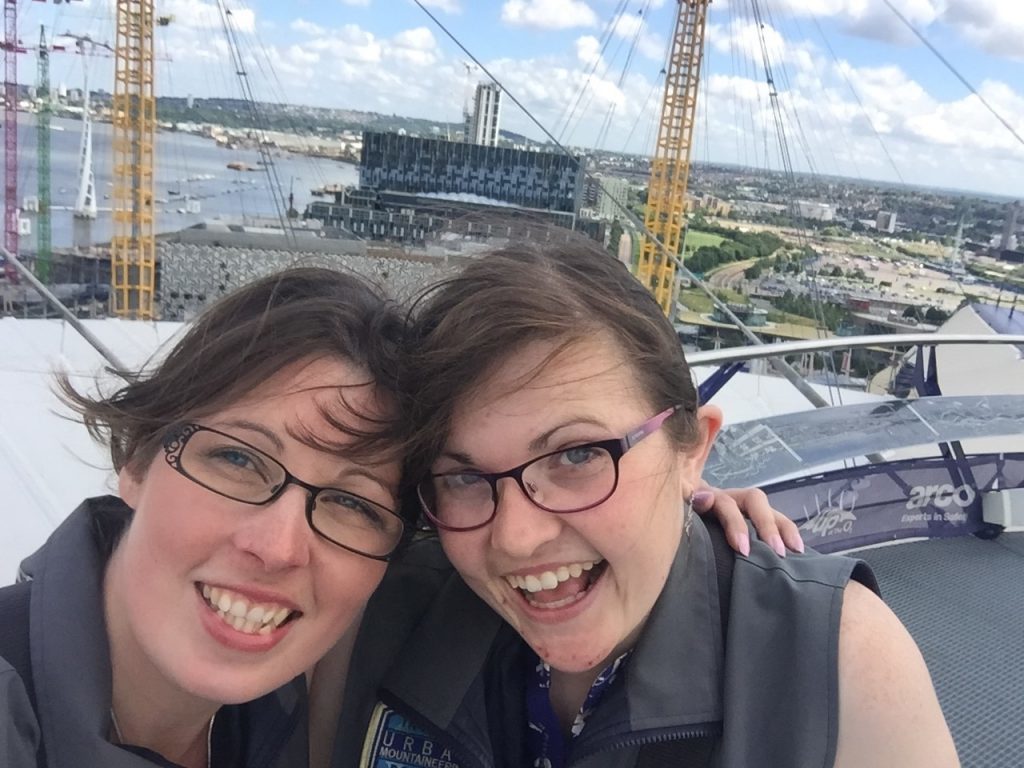
“WE are sisters. And sisters stick together through thick and thin.”
So says Laura Goldswain, and she was as good as her word when her older sister Dawn McMullan contracted encephalitis.
The condition is inflammation of the brain, caused either by an infection or the body’s own immune system attacking it in error.
And the effects can be profound on both the patient and their loved ones.
“It all started in 1998,” says Dawn, who’s now a mum.
“I was 17 years old, at college and learning to drive, but all that was about to change.
“I started to have extreme headaches and was feeling ill. The doctor diagnosed a migraine, but five days later things got a lot worse.
“My memory of what happened next is a lot different to reality because of hallucinations and confusion.
“I remember looking out the window in my bedroom watching Dad cook on the BBQ, then going to bed as it was late, but none of that actually happened.
“What my mum tells me is we were getting ready to go on holiday and I was meant to be packing, but I had got ready for bed instead.
“But this was morning — I was very confused.
“My family luckily heard a bang and my seven-year-old sister came upstairs to find out what the noise was.
“She found me collapsed and having a seizure on the floor.
“I was hardly breathing, paralysed all down one side and frothing at the mouth.
“Dad gave me mouth to mouth while Mum rang the ambulance.
“In hospital, a lumbar puncture was done to confirm I had viral herpes simplex encephalitis.
“It was like going back to being a baby,” reveals Dawn.
“I couldn’t walk, talk, eat, dress or read. I had to start life all over again.
“After 10 days in hospital — where I used to rip my drip out as I didn’t understand what was happening — they let me go home.
“There, my mum and sister used to wash and dress me and take me to the toilet, then Dad would carry me up the stairs as I still couldn’t walk.
“I would hallucinate I had lizards on the bed and spiders running up the wall.
“When I finally got to a neurologist after eight years of people not accepting something was wrong, he explained I had damage to the cognitive area of the brain causing short-term memory loss, slow processing of information, trouble concentrating, facial prosopagnosia — I struggle to recognise faces — and nerve system damage.
“But I was also taught ways of coping.
“Now, my diary is my life,” Dawn says.
“It’s how I get by day to day, and my phone has so many alarms on to remind me of the most important things like picking up the kids from school.
“My children are great at reminders. Because I had them after the encephalitis they only know me like I am now, and that’s the same for my husband, Stephen.
“Sometimes, my head feels like it’s exploding.
“I stand there with so much information racing through my brain unable to make sense of any of it.
“I have all these different strategies just to get dressed in the morning and for everything else in life.
“My world is very different.
“Imagine not being able to choose what you want to eat because your head is in a cloud with so many things racing through your mind, or not recognising loved ones.
“But instead of clinging on to the past I’ve found new things and hobbies my brain can do, like my new love for gardening, going to concerts and the theatre.
“All the simple things in life have been made hard but it’s taught me not to give up and to love life. And I do.”
WORLD Encephalitis Day is on February 22, when many landmarks will be turned red as part of the #RED4WED campaign, in which people are also being asked to wear something red.
For more information visit www.worldencephalitisday.org
The Encephalitis Society provides support and information to people affected by encephalitis. Visit www.encephalitis.info

Enjoy the convenience of having The Sunday Post delivered as a digital ePaper straight to your smartphone, tablet or computer.
Subscribe for only £5.49 a month and enjoy all the benefits of the printed paper as a digital replica.
Subscribe
